LATEST NEWS
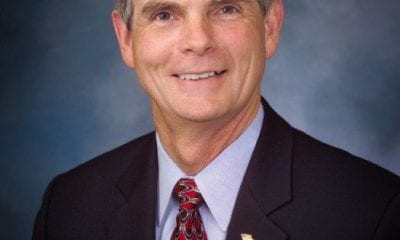
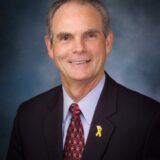
Last month former San Jose mayor Chuck Reed took the first step toward offering a promised draft of a 2016 public pension cutting initiative that, he has hinted, will target the California Public Employees’ Retirement System. CalPERS manages the retirement and health benefits for more than 1.6 million California public employees, retirees and their families. Reed tried to get a pension initiative on the ballot in 2014, only to withdraw the measure when state attorney general Kamala Harris assigned it a ballot description that Reed and his allies believed would hurt their chances with the electorate.
This time, however, Reed could find his campaign in danger from an unexpected source – conservative allies who might be worried that his initiative’s very presence on the ballot will draw huge numbers of liberal and union voters – who would then also vote against conservative candidates running for local and state office.
» Read more about: Pension Cutters' 2016 Ballot Obstacle: Voters »
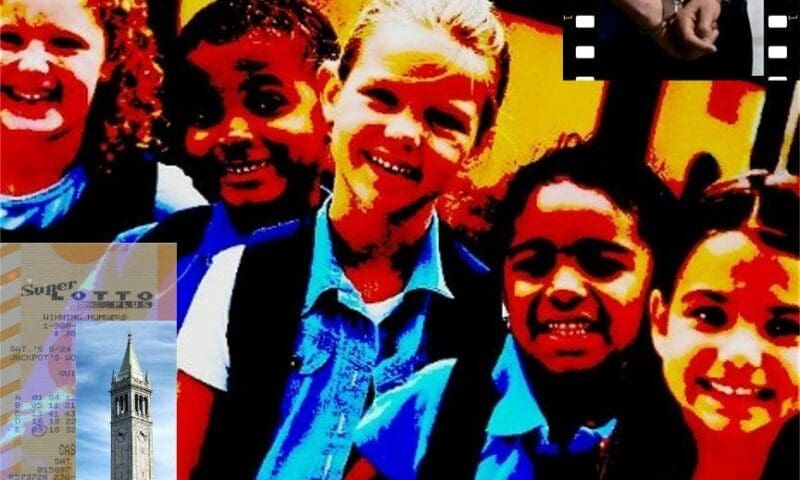

As this series has made clear, “The California Chasm” is a challenge that threatens to transform the state into a shadow of its former self. Once a place where people came together to realize fortunes, remake their lives and attain their piece of the American Dream, we have become a state saddled with sharp differences in social, economic and health outcomes due to race, place and class.
This is an encore posting from our State of Inequality series
The resulting division is damaging to our sense of community but it also leaves the potential of our residents untapped. With research increasingly demonstrating that more equitable strategies can produce more sustainable growth, we need to create a conversation about how California can lead the nation not in inequality but in opportunity.
We have the know-how —
» Read more about: Twelve Ways to Reverse Inequality and Close the "California Chasm" »
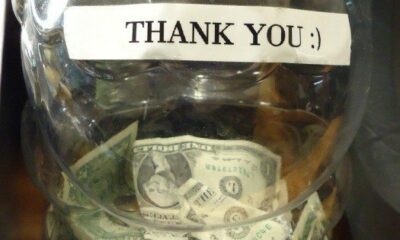

California is one of only seven states that pays tipped workers their state’s minimum wage instead of the penurious $2.13 (the federal minimum) to $5 range. California’s wait staff and other service workers collect a $9 hourly minimum—plus gratuities. Legislation will raise the state minimum wage to $10 hourly next year. But that won’t apply to tipped workers, if a proposed bill passes the California legislature and becomes law.
Assembly Bill 669 was sponsored by the California Restaurant Association (CRA) and introduced by Assemblyman Tom Daly (D-Anaheim). Daly’s bill would cap the minimum wage for California’s tipped workers at $9 if they earn a total of $15 hourly. Far more disturbing to low-income service employees, however, is a passage embedded in the bill that could undo local minimum wage ordinances previously approved by voters in Oakland, Richmond, San Francisco and San Jose.
Those measures would be overturned unless they “specifically reference” the Daly bill’s language – an unlikelihood,
» Read more about: Will a New California Bill Trump Minimum Wage Ordinances? »
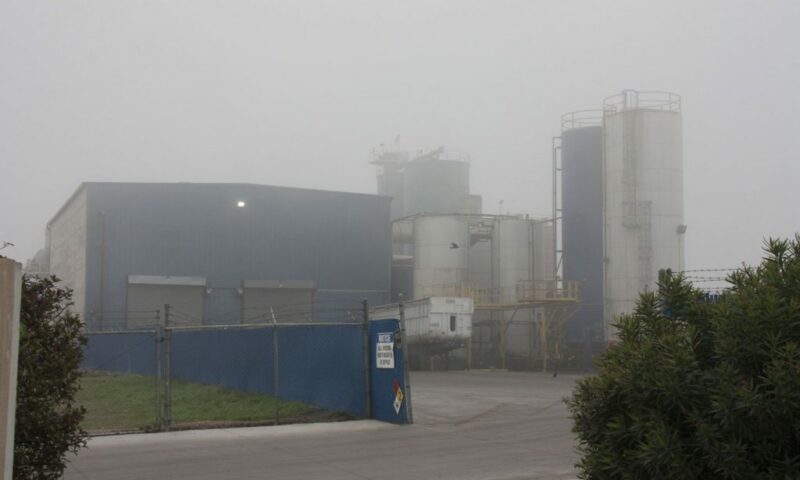
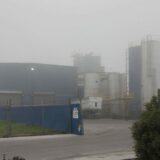
One day late last year, retired police officer Robert Mitchell took several visitors on a tour of the West Fresno community where he has lived for decades. But it was hardly a nostalgia excursion.
This is an encore posting from our State of Inequality series
First, there was a stop at Hyde Park, a former dump. There was another at a sports complex and fishing pond built on a Superfund cleanup site. And still another at a controversial meat-rendering plant operated by Darling Ingredients Inc. that residents say has spewed foul smells into nearby residential areas for more than half a century.
“You constantly had the horrific odor of the processing that occurs here at Darling,” said Mitchell, a thoughtful man with a bushy white beard and deep voice. He and his visitors stood outside the Darling plant,
» Read more about: Hell’s ZIP Code: Clearing the Air in West Fresno »
[vc_row][vc_column][vc_raw_html]JTNDc3R5bGUlM0UuZW1iZWQtY29udGFpbmVyJTIwJTdCJTIwcG9zaXRpb24lM0ElMjByZWxhdGl2ZSUzQiUyMHBhZGRpbmctYm90dG9tJTNBJTIwNTYuMjUlMjUlM0IlMjBoZWlnaHQlM0ElMjAwJTNCJTIwb3ZlcmZsb3clM0ElMjBoaWRkZW4lM0IlMjBtYXgtd2lkdGglM0ElMjAxMDAlMjUlM0IlMjAlN0QlMjAuZW1iZWQtY29udGFpbmVyJTIwaWZyYW1lJTJDJTIwLmVtYmVkLWNvbnRhaW5lciUyMG9iamVjdCUyQyUyMC5lbWJlZC1jb250YWluZXIlMjBlbWJlZCUyMCU3QiUyMHBvc2l0aW9uJTNBJTIwYWJzb2x1dGUlM0IlMjB0b3AlM0ElMjAwJTNCJTIwbGVmdCUzQSUyMDAlM0IlMjB3aWR0aCUzQSUyMDEwMCUyNSUzQiUyMGhlaWdodCUzQSUyMDEwMCUyNSUzQiUyMCU3RCUzQyUyRnN0eWxlJTNFJTNDZGl2JTIwY2xhc3MlM0QlMjdlbWJlZC1jb250YWluZXIlMjclM0UlM0NpZnJhbWUlMjBzcmMlM0QlMjdodHRwcyUzQSUyRiUyRnd3dy55b3V0dWJlLmNvbSUyRmVtYmVkJTJGJTJGSkVvTmFFZlVSQzglMjclMjBmcmFtZWJvcmRlciUzRCUyNzAlMjclMjBhbGxvd2Z1bGxzY3JlZW4lM0UlM0MlMkZpZnJhbWUlM0UlM0MlMkZkaXYlM0U=[/vc_raw_html][/vc_column][/vc_row][vc_row][vc_column][vc_empty_space height=”35px”][/vc_column][/vc_row][vc_row][vc_column][vc_column_text]
Walking on the tiered layers of rebar at the Wilshire Grand Center construction site is a challenge, especially when wearing the heavy shoes required for safety. You have to watch every step, looking down to make sure that each foot is firm and the body balanced before moving forward. The rough edges of the rods are a brown, grey and rust color mix that blends through the 20-foot long steel. You see and feel the ordered coherence of an enduring structure.
There is a sense in which the ability to notice, rather than to merely look, is part of an artist’s skill. In his drawing classes, the 19th century British art critic and writer John Ruskin taught that noticing the environment around you in a more rigorous way was something that could be learned, a way of thoughtfully moving through the world that he believed need not be limited to the “cultured” and “educated.”
Ruskin (he is a featured character in the recent movie Mr.
» Read more about: Sefi Edery: A Portrait of the Artist as a Young Ironworker »
[vc_row][vc_column][vc_column_text]
Do failed policy proposals from public education officials enjoy an afterlife when their creators depart Washington for the private sector? This is no academic question. In fact, the career arcs of two former federal policymakers may well have foreshadowed the life-or-death clash over the accreditation of San Francisco City College (CCSF), one of California’s 112 community colleges. The state is home to about 10 percent of America’s 1,100 two-year colleges.
As San Francisco Superior Court Judge Curtis Karnow’s ruling on the Accrediting Commission for Community and Junior College’s bid to decertify CCSF draws near, the story of Margaret Spellings becomes instructive. Spellings, who was George W. Bush’s second-term Secretary of Education, commissioned a controversial 2006 report called “A Test of Leadership: Charting the Future of U.S. Higher Education.”
The report’s language was very much in tune with the pro-business Bush zeitgeist.


Unlike restaurant menus, community and democracy don’t work “à la carte.” We do not get to pick the laws we want to follow. The owners of Los Angeles’ trendy Golden Road Brewing seem not to understand this. As they champion one notion of “community,” they turn their backs on the actual people who compose the community.
In a recent L.A. Times piece on how a minimum wage increase will affect city businesses, Golden Road’s Tony Yanow (who also owns the Mohawk Bend and Tony’s Darts Away gastropubs) balked: “I love L.A., but that doesn’t mean it’s my best bet,” he told the Times. “Do you want to go somewhere where you can make money, or do you want to go somewhere where they’re stacking the cards against you?” He went on to engage in some not-very-subtle threat-making, noting that if L.A. increases its minimum wage, he may shift operations to neighboring,
I recently interviewed one of the country’s unabashed progressive leaders, New York Mayor Bill de Blasio. Our discussion ranged from Ronald Reagan’s legacy to the failures of contemporary Democrats to stand up for their values. “We have an income inequality crisis in this country that will endanger the future of the entire United States of America,” de Blasio told me. We present here the fourth in a series of clips from that interview. (Full transcript here.)
Danny is communications director at LAANE and the publisher of Capital and Main. He has led LAANE’s communications efforts for the past decade. He has attracted national media attention for numerous LAANE projects, including the successful effort to stop Wal-Mart from building a superstore in Inglewood and the drive to bring living wages to hotel workers in Santa Monica.
Read more articles by Danny Feingold
» Read more about: Watch Now: Bill de Blasio on Economic Inequality »


“He’s had some statements that to me sound kind of liberal, has taken me aback, has kind of surprised me,” (Sarah Palin on Pope Francis)
“He acts so holy. He made love to every girl in every city in America and he had AIDS. And when he had those AIDS, I went to my synagogue and I prayed for him. I hoped he could live and be well. I didn’t criticize him. I could have.” (Donald Sterling on Magic Johnson)
“Everybody who wants to steal your guns is funded by the unions. Everybody who wants to raise your taxes is funded by the unions. Everybody who wants to borrow too much money is funded by the unions. Whatever center-right issue you care about, the unions are on the other team.” (Grover Norquist)
“The guy who wins the Oscar for Best Actor has a much higher bar to clear than the woman who wins best actress.” (Writer-producer Aaron Sorkin)
“They abort their young children,
I recently interviewed one of the country’s unabashed progressive leaders, New York Mayor Bill de Blasio. Our discussion ranged from Ronald Reagan’s legacy to the failures of contemporary Democrats to stand up for their values. “We have an income inequality crisis in this country that will endanger the future of the entire United States of America,” de Blasio told me. We present here the third in a series of clips from that interview. (Full transcript here.)
Danny is communications director at LAANE and the publisher of Capital and Main. He has led LAANE’s communications efforts for the past decade. He has attracted national media attention for numerous LAANE projects, including the successful effort to stop Wal-Mart from building a superstore in Inglewood and the drive to bring living wages to hotel workers in Santa Monica.
Read more articles by Danny Feingold » Read more about: Watch Now: Bill de Blasio on Progressive Movements in American Cities »


“That can’t be,” Alma Gutierrez said, shaking her head.
“Why not?” Hank Dixon shot back. “It makes money for the university and they get to, you know, what do you call it they do in college … field work, I guess you’d say.”
The two were standing in the laundry room of the Eden Arms. Dixon was installing a new drive belt on one of the dryers. She’d been walking by and he’d called her inside. The handyman continued, “Look, I’m not saying this is for sure, since it comes secondhand.”
“But this man, this gambling friend of your nephew is a lawyer?” The widow Gutierrez didn’t approve of card playing or betting on the horses. Her deceased husband had a gambling habit and more than once had lost the rent money chasing the ponies or doubling down in blackjack.
“Yeah,” Dixon answered while continuing his repair work.
» Read more about: The Dixon Family Chronicles: “Shut Christmas Down!” »
I recently interviewed one of the country’s unabashed progressive leaders, New York Mayor Bill de Blasio. Our discussion ranged from Ronald Reagan’s legacy to the failures of contemporary Democrats to stand up for their values. “We have an income inequality crisis in this country that will endanger the future of the entire United States of America,” de Blasio told me. We present here the second in a series of clips from that interview. (Full transcript here.)
Danny is communications director at LAANE and the publisher of Capital and Main. He has led LAANE’s communications efforts for the past decade. He has attracted national media attention for numerous LAANE projects, including the successful effort to stop Wal-Mart from building a superstore in Inglewood and the drive to bring living wages to hotel workers in Santa Monica.
Read more articles by Danny Feingold » Read more about: Watch Now: Bill de Blasio on the Current Economic Crisis »
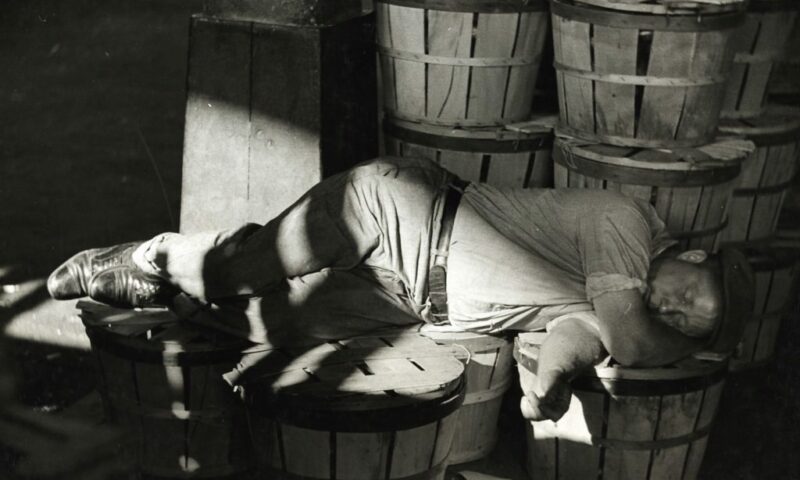

Our friend showed up late in the evening from Northern California to spend a couple of days with us before pushing on in a long-planned vacation. But when I woke up the next morning, he had been up for hours. I found him surrounded by three screens and his cell phone – solving a tech problem for his company.
“Auspicious beginning of a vacation,” I said. “I thought you were supposed to leave all that behind.”
“Oh, no,” he said, “not at my pay level.”
And so it goes. “No rest for the weary and the wicked go free.” That was an oft repeated phrase an early mentor in work mumbled as he sipped on yet another cup of coffee and ran to yet another customer. He may have been obsessive and wired, but he only worked a 40-hour week. None of us worked more, except the boss now and then.


Capital & Main recently looked at a spate of negative headlines about public pension funds, spurred by data that State Controller John Chiang released on his new public data site at ByTheNumbers.sco.ca.gov.
Chiang has served as Controller since 2006, acting as California’s Chief Fiscal Officer. He was recently elected as State Treasurer and will switch to that office next year. In both roles, Chiang sits on the Boards of Administration for the two largest public employee funds, California Public Employees’ Retirement System (CalPERS) and the California State Teachers’ Retirement System (CalSTRS).
Capital & Main followed up with the Controller to ask about the state of pension systems in California and how those systems should be looking to the future.
The data you posted on your By the Numbers site led to many existing critics of pension saying “See?
» Read more about: Controller John Chiang on the Future of California’s Public Pensions »
…
California is in the midst of what is arguably the worst drought in its recorded history.
Powered by Cincopa Video Hosting for Business solution.California’s Megadrought in the Central ValleyPictures of land and people in California’s Central Valley impacted by the state’s historic drought.Dead orchards are bulldozed and woodchipped to make into compost.flash 16cameramake Canonheight 600orientation 1camerasoftware Adobe Photoshop CC 2originaldate 10/28/2014 5:34:26 PMwidth 900cameramodel Canon EOS 5D Mark IICitrus grower Bryan Hixson alongside the Friant-Kern Canalflash 16cameramake Canonheight 600orientation 1camerasoftware Adobe Photoshop CC 2originaldate 10/28/2014 12:23:12 AMwidth 900cameramodel Canon EOS 5D Mark IIAlmond husks. Almonds are highly water-intensive, but growers are holding onto their almond fields and even switching over to the crop because it yields among the highest profit margins.flash 16cameramake Canonheight 600orientation 1camerasoftware Adobe Photoshop CC 2originaldate 10/28/2014 7:10:32 PMwidth 900cameramodel Canon EOS 5D Mark IIBoth the high-speed rail and the effort to restore the San Joaquin salmon run are political third rails in the Central Valley.flash 16cameramake Canonheight 600orientation 1camerasoftware Adobe Photoshop CC 2originaldate 11/6/2014 12:00:38 AMwidth 900cameramodel Canon EOS 5D Mark IICitrus grower Gus Carranza in his fieldsflash 16cameramake Canonheight 600orientation 1camerasoftware Adobe Photoshop CC 2originaldate 10/27/2014 8:13:52 PMwidth 900cameramodel Canon EOS 5D Mark IICalifornia’s Proposition 1 was an emergency measure to mitigate the drought situation,
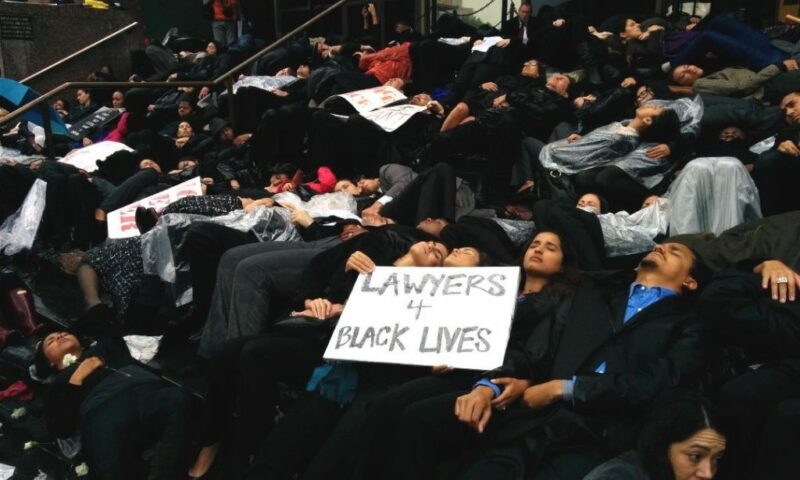
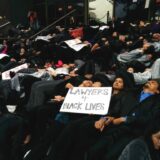
“Racism doesn’t take a break when it rains and neither will we,” Priscilla Ocen, a professor at Loyola Law School, announced over a loudspeaker outside the Stanley Mosk Courthouse in downtown Los Angeles Tuesday. Before her stood a crowd of about 200 people, mostly lawyers and law students, who braved a downpour to protest state violence from South L.A. to New York City, culminating in a four-minute-and-thirty-second “die-in” — representing the four-and-a-half hours that police in Ferguson, Missouri, let Michael Brown’s dead body lie in a street.
“I think it’s a really important thing to stand up to the injustice that we’re seeing around the country,” said Mona Iman, director of Taslimi Foundation, which works to defend human rights in Iran. “This wave of killings of unarmed black men is just so disturbing,” she told me, “and when you feel the frustration and you feel the anger at what’s happening in the world,
» Read more about: Lawyers and Law Students Stage ‘Die-in’ Outside L.A. Courthouse »


“Ain’t that about nothing,” Macy Farmdale said. “Nine to zip, including the so-called liberals.” She shook her head. “What chance does the working woman have, I ask you.”
Jess Dixon said, “It’s all about keeping the big conveyor belt going, Macy. Us peasants have no choice but to fight and scrabble each day for our rice and beans.”
“Sheeet,” her friend sneered.
The two chuckled mirthlessly. They lamented the recent Supreme Court ruling wherein employees were expected to go through their end of shift security screenings on their own time—no matter if it took five minutes or half an hour.
Farmdale leaned across the lunch table toward the other woman. “This is why we need a union,” she whispered. She leaned back and had more of her chicken salad sandwich.
Jess hunched her shoulders. “That wouldn’t change the ruling. I bet them unions filed, you know,
» Read more about: The Dixon Family Chronicles: “The People United” »


What do Facebook, Kaiser Permanente, Staples and the San Francisco Department of Environment have in common? All four appear on a list of corporate and government entities that pledged to stop purchasing furniture treated with flame-retardant chemicals. The Center for Environmental Health (CEH), the organization behind the pledge, hopes to steer business away from furniture containing flame retardants, which have been linked to a range of health risks. All the offices on the list spend a combined $520 million on furniture every year.
The pledge coincides with new state legislation that will require manufacturers to attach labels to furniture treated with flame retardants. In September Governor Jerry Brown signed Senate Bill 1019, which takes effect January 1, 2015.
Treating furniture with flame-retardant chemicals used to be standard procedure for meeting California’s furniture flammability code, known as Technical Bulletin 117.
“For a long time government regulations were promoting the use of these chemicals,” Charles Margulis of CEH tells Capital &
» Read more about: Offices Pledge They’ll Buy Chemical-Free Furniture »
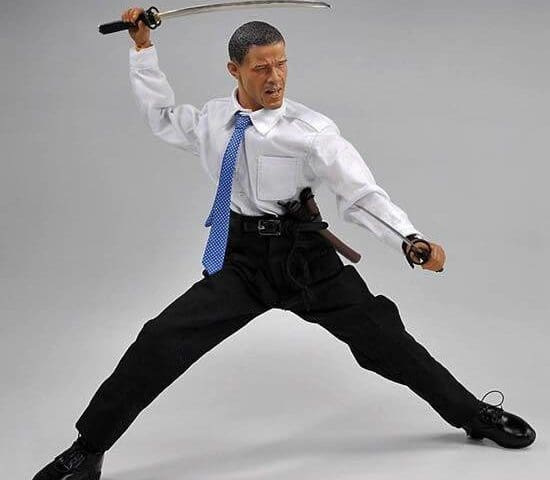
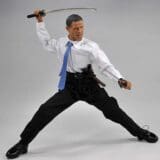
Occasionally, President Barack Obama reminds us that he was once a community organizer.
In his interview last Monday night with BET News, Obama said that he had invited some people who have been organizing protests against police misconduct to meet with him at the White House last week.
“Because the old adage, power concedes nothing without a fight — I think that’s true,” Obama said.
Obama was closely paraphrasing a statement by the great abolitionist Frederick Douglass that is well-known among community organizers and activists: “Power concedes nothing without a demand.”
This is not a phrase that most politicians would be familiar with. Obama probably first heard Douglass’ words during his three years as a community organizer in Chicago during the 1980s. Douglass’ famous one-liner was actually part of a speech he gave on August 3, 1857 in Canandaigua,